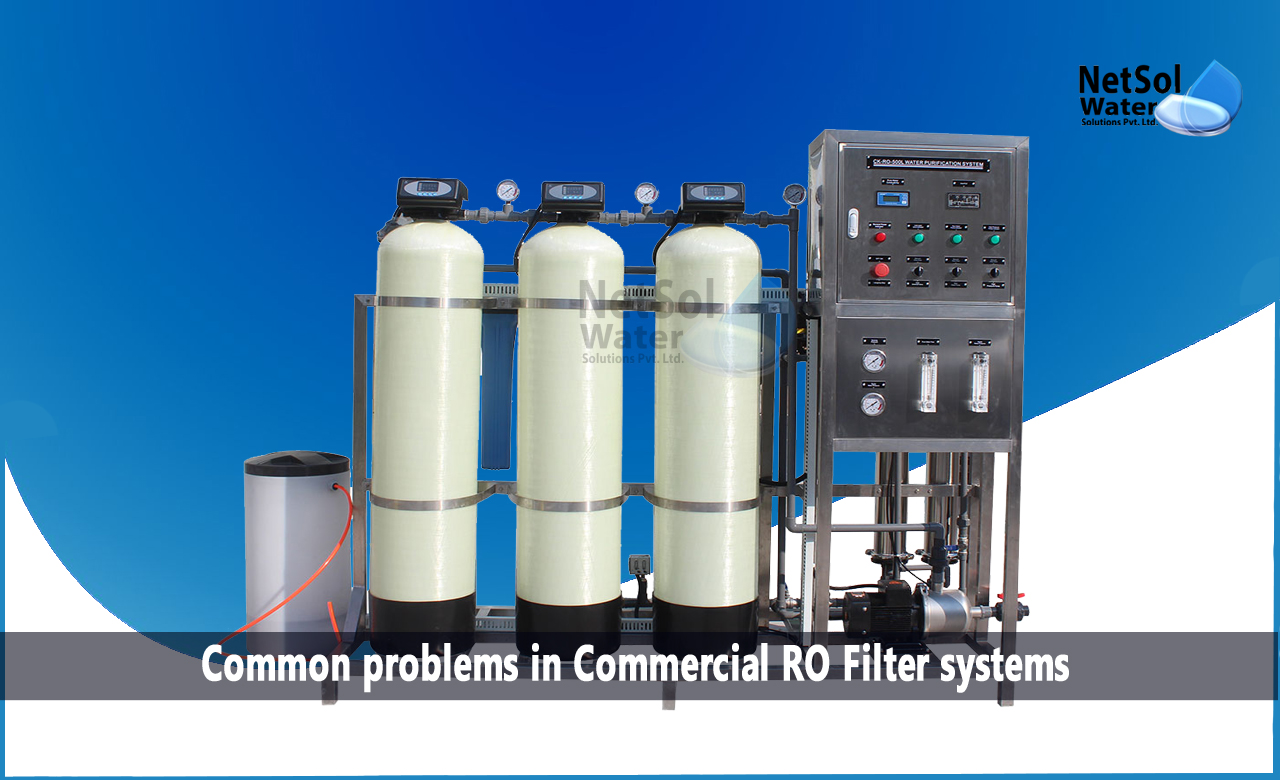What are the Common problems in Commercial RO Filter systems?
It's time to investigate if you notice that the taste of your drinking water is odd. The problem can be solved quickly with a reverse osmosis water system. But it's crucial to be aware of the most frequent problems with reverse osmosis systems and how to quickly resolve them.
Most reverse osmosis systems just need routine filter replacements; however, issues do occasionally arise. We have troubleshooting experience ranging from leaking water lines to low pressure, and we can advise you on which issues you can realistically handle on your own and which ones necessitate professional assistance.
You may try to prevent them and have a smooth, problem-free experience with your reverse osmosis system by being aware of these typical problems in advance.
This blog post will discuss the most common problems people experience with reverse osmosis water systems.
Typical issues with commercial RO filters:
1. No Water:
Check all the water valves first if the reverse osmosis system isn't producing any water. Prior to checking the main feed and tank valve, check the main shutdown valve at the cold-water tap. Check the tank's pressure if all the valves are turned on. Also consider checking the filters because clogged filters can interfere with water flow. Call a reputable water services firm if there is still no water flow.
2. Air Pressure inside the Tank:
The air pressure inside the tank is another factor that could prevent the RO system from giving customers the best possible water flow. Without water inside, the typical air pressure should be between 7 and 8 psi. You may check air pressure using a Schrader valve that is hidden beneath a blue cap on the water tank side.
Use a pressure gauge to assess air pressure after emptying the water tank. If it is less than what is needed, you can use the air pump to add air to the tank until the pressure is between 7 and 8 psi. When adding air, exercise caution because too much pressure can harm the air bladder.
3. A water purifier emits an unusual smell or taste:
The RO may have developed a biofilm in one or more of its sections, giving the water an odd taste or odor. A biofilm is a layer of organic and biological matter that develops on the surface of a water filter. The quantity of contaminants in the water consequently rises. The membrane should be changed as soon as possible, along with any clogged filters. Once the filters and membrane have been changed, assess whether the flavor or aroma of the water has changed. Ensure that the filters are changed every 12 months.
4. Clogged Filters:
We advise you to replace the filters in your RO system every 6 to 24 months. This is dependent on the type of water input and the particular model of RO system. Long-term neglect of the filters might cause pollutants to build up and block the RO system's membrane. The filters' membranes are weak and prone to fouling over time. While a clean filter membrane only needs 2 to 4 hours to clean the water, a RO system with a fouled membrane needs about 4 to 6 hours. You can schedule a reminder in your calendar to change the blocked filters in order to avoid this problem.
5. Making Too Much Noise:
When the reverse osmosis system drains, you might hear a gurgling sound. Air causes gurgling, which is common, especially when anything is new. However, if the gurgling intensifies or continues, it might be a sign of something wrong. Examine all the water lines for bends or damage, as well as the drainpipe for clogs.
6. High Levels of TDS:
Total dissolved solids (TDS), which are removed from water by reverse osmosis systems, are compounds. If your TDS meter indicates a high level of TDS, the RO membrane isn't working. The RO membrane can and will be harmed by high chlorine levels or by failing to replace the RO filters on schedule. High TDS levels can only be reduced by purchasing and installing a new membrane.
7. Failure of the auto shut-off:
The RO automatically stops purifying when the water storage tank reaches a certain level. The purifier will operate continuously if the auto shut-off mechanism isn't working properly. This would cause the storage tank to overflow with water.
Do you need an advice or assistance on selecting the best water and waste water treatment unit? We have solutions for all your problems!
Let us now your problem, our experts will make sure that it goes away.
For an assistance or related query,
Call on +91-965-060-8473
Or write us at enquiry@netsolwater.com



